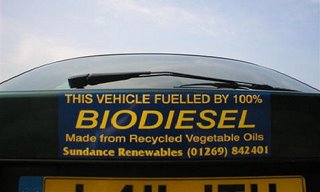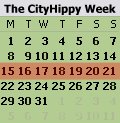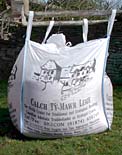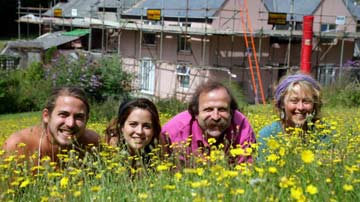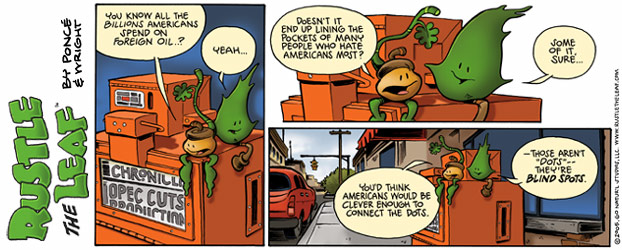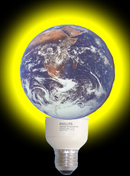
So who is a girl’s best friend when it comes to weddings? According to the marketing it isn’t your chief bridesmaid, it’s that shiny sparkly bit of carbon commonly known as a diamond.
But diamonds inevitably lead to a dilemma for the ethical bride: how do you avoid conflict or ‘blood’ diamonds?
The United Nations definition of conflict diamonds is:
‘…diamonds that originate from areas controlled by forces or factions opposed to legitimate and internationally recognized governments, and are used to fund military action in opposition to those governments, or in contravention of the decisions of the Security Council.’
For a very emotive account of what this could mean in reality, click
here.
The
Kimberley Process Certification Scheme, set up in 2002 after 2 years of negotiations, was intended to wipe out the trade in conflict diamonds. According to its website, it is: ‘…an innovative, voluntary system that imposes extensive requirements on Participants to certify that shipments of rough diamonds are free from conflict diamonds. The Kimberley Process is composed of 45 Participants, including the European Community. Kimberley Process Participants account for approximately 99.8% of the global production of rough diamonds.’
However, this is not a complete solution – note the dreaded word ‘voluntary’ for starters. And as one diamond supplier,
DiamondHunt.co.uk, say on their website: ‘One of the main faults with the KP is that there are no requirements for individual mines to be monitored by own governments. […] Therefore it will be relatively easy for a determined RUF [Sierra Leone's Revolutionary United Front] controlled mine to continue to mine conflict diamonds then simply smuggle them into the mine of a non-conflict country. These conflict diamonds would then be certified as coming from the non-conflict area and away they go.’
Two years after the KP had been set up, Amnesty conducted their own investigation and found that: ‘New survey shows diamond shops can't assure customers that stones are not conflict diamonds’. Click
here for the summary of their findings.
And of course nothing is ever simple. DiamondHunt.co.uk declare that: ‘‘All the diamonds on our www.DiamondHunt.co.uk database come from cutters who source their diamonds from De Beers mines only. This way we can guarantee our diamonds are CONFLICT FREE.’
De Beers, however, is currently the target of a high profile boycott by
Survival International over the eviction of the Central Kalahari Bushmen to make way for diamond mining.
Director of Survival International, Stephen Corry, believes: ‘It is not OK for people to wear diamonds by De Beers until the Bushmen are allowed back to their ancestral lands.’
Find out more
here and the latest news
here.
And not forgetting
Boycott De Beers!
Despite this doom and gloom, it is possible to find jewellers stocking ethically sourced diamonds.
Here are a few companies who are really passionate about the ethical element of their jewellery. In many ways, this passion is one of the best assurances you can get that your diamond is ethically sourced.
Brilliant Earth (based in the US) introduce their new collection ‘…of the finest quality conflict-free diamond jewellery founded on the highest standards of social and environmental responsibility. All of our diamond jewellery is certified to be conflict-free, environmentally responsible, and untainted by unethical labour practices.’
HK Jewellery, with branches in Weston, Hertfordshire and Cambridge, declare on their website: ‘We have always been passionate about using conflict free diamonds and ethically mined gemstones and together with the British Jewellers' Association and our diamond suppliers put a lot of effort into ensuring that the diamonds that we use are not sourced from areas of Africa controlled by forces rebelling against the legitimate and internationally recognised government of the relevant country.’
Stephen Einhorn, based in London, state on their website that: ‘Our aim is to run an ethically responsible company. All our fine jewellery is handcrafted to the highest standards in our London workshops using ethical labour and materials.
As we are particularly concerned about where our materials come from we only use ethical Diamonds and refuse to use “Conflict Diamonds” which are inexorably linked with human rights abuses and conflict in many parts of Africa.’
Stephen Einhorn also works with wood. See Thames Wood Jewellery below.
Dejoria believe that: ‘… you should always insist that the diamonds used in diamond engagement rings, diamond eternity rings, diamond rings or diamond jewellery be "conflict-free".
‘After all, not only do conflict diamonds wreak untold misery upon innocent and defenceless people (and all ethical diamond jewellers need to make a stand against this) but we recognise that our customers need the assurance that the diamond they are buying - a symbol of their love for another person - is a legitimate, genuine, conflict-free gem.’
Dejoria also ploughs back a percentage of the revenue they generate from sales into worthwhile projects in the countries where the diamonds are mined such as education and health projects.
The Diamond Jeweller assures its customers that: ‘…all the diamonds used in our diamond jewellery are "conflict-free", whether it be in our diamond engagement rings, diamond eternity rings, diamond rings, diamond pendants, diamond earrings, diamond bracelets, diamond necklaces or diamond cufflinks. After all, a diamond is a beautiful symbol of love which must not be tarnished by a dark history.’
Touch Wood Rings. Or forgo the diamonds altogether! Touch Wood Rings (based in Canada) contacted us about their services: ‘We believe that wearing a wooden ring speaks volumes about your commitment to the environment and to the concept of simple living. Give someone you love a Touch Wood Ring as a socially and environmentally responsible alternative to precious metals and gemstones.’ Check out Al's review of his Touch Wood Ring
here.
Thames Wood Jewellery features 2000 year old Roman Oak taken from the first port facilities built in London by the Romans around 63AD. Stephen Einhorn state that: “We are the exclusive owners of this unique wood, which is in effect being “recycled” and used in our fine jewellery and is rarer than a Diamond. If you want to skip wearing gold you can also opt for titanium instead.” Click for
images.
If you are heading off on a diamond hunt, don’t forget to go primed by your Global Witness / Amnesty
buying guide and armed with their handy downloadable
2-page leaflet with the key questions to ask.
Ethical -living Leo Hickman also puts in his 2-carats-worth in this good overview piece for
The Guardian.
Join me next week to find out how my husband negotiated this ethical minefield just to put a ring on my finger!
Take care
Katie
ethicalweddings.comTechnorati tags:cityhippygreenenvironmentethicalshoppingdiamondringjewelleryfashionalternativeorganicwedding



